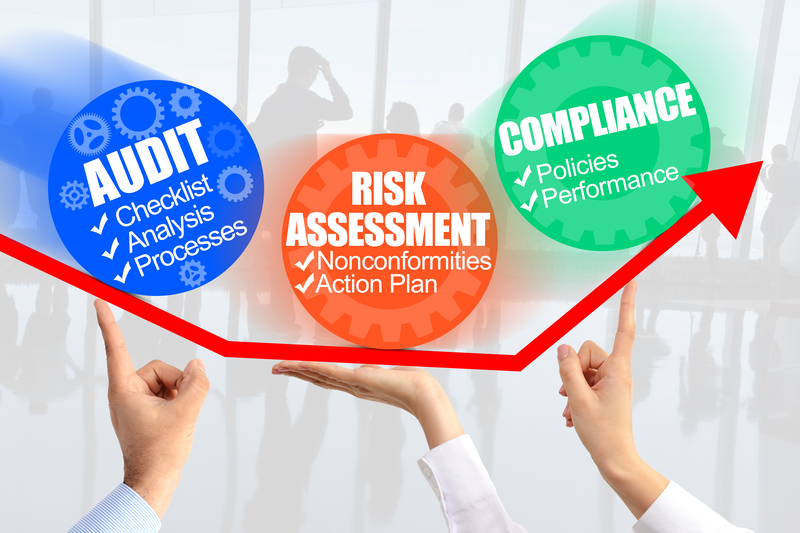- Essential Bookkeeping Habits For Audit Ready Books in Canada
- Tax Audits in Canada
- Personal Services Business
Should You Hire a Personal Services Business?
Applies To Contract For Service Relationships | Independent Contractor Status
By L.Kenway BComm CPB Retired
This is the year you get all your ducks in a row! Start by starting.
Published January 3, 2024 | Edited February 24, 2025 | Updated November 6, 2025
 A PSB relationship has its own special work category called incorporated employee.
A PSB relationship has its own special work category called incorporated employee.November 6, 2025
BREAKING NEWS: DRIVERS INC.
On October er 30, 2025 The Finance Department announced the 14-year moratorium on T4A Box 048 penalties for failure to report fees for service transactions over $500 annually is ending.
CRA will be receiving funds in the 2025 Budget "to implement a focused program that addresses non-compliance issues related to personal services businesses and reporting fees for service." CRA emphasis initially is likely to be placed on the trucking companies who classify their drivers as subcontractors rather than employees. This business model is known as Driver Inc..
What Is The Drivers Inc. Business Model?
The Driver Inc. model is an illegal practice, primarily in the Canadian trucking industry, where trucking companies misclassify drivers as independent contractors (by having them incorporate) instead of employees. They drive company trucks and the company pays for their fuel, insurance and maintenance. This allows companies to avoid paying essential employer obligations such as Canada pension plan (CPP) contributions, employment Insurance (EI) premiums, workers' compensation premiums (WCB), overtime pay, vacation pay, and statutory holiday pay, and payroll taxes .
More >> Minister Champagne clamps down on Driver Inc. scheme in Budget 2025
According to KPMG's TaxNewsFlash (November 4, 2025, No. 2025-41), the 2025 Federal Budget introduces new information-sharing provisions that allow the Canada Revenue Agency to share taxpayer and confidential information with ESDC (Employment and Social Development Canada) to help enforce worker classification rules under the Canada Labour Code. While the budget specifically mentions addressing misclassification issues in the trucking industry, this change could have broader implications for self-employed Canadians and businesses that engage contractors, as it signals increased government scrutiny on worker classification. This measure would take effect upon royal assent of the enabling legislation.
Highlights Of This Post
An incorporated employee is a special worker category you should be aware of.
(1) From the viewpoint of the business owner
- The incorporated employee is not a contractor or self-employed
- A summary of PSB rules
(2) From the viewpoint of the non-employee
- No small business deduction and general rate reduction
- Higher corporate tax rates and limited expense deductions
(3) CRA 2022 Personal Services Business Audit Project
(4) FAQ about personal services businesses
- Why would a worker want to become an incorporated employee?
- What are the risks to a business that hires an incorporated employee?
- How does CRA ascertain employment status?
- What are the repercussions of misclassification of a worker?
- How can you avoid the incorporated employee status?
Conclusion
CRA has stated the purpose of the Personal Services Business Pilot Project is a precursor to CRA moving forward with full compliance measures in the future. The purpose of recent changes to the tax treatment for personal services businesses is ... to discourage employees from incorporating their services.
The Incorporated Employee
From the viewpoint of the Business Owner
While utilizing a personal services business (PSB) in Canada may initially appear advantageous, small business owners need to be aware of the potential tax implications and risks involved. It is always prudent for a business to seek proper legal and tax advice to weigh the pros and cons before opting for this kind of working relationship.
Independent contractors (workers) and businesses (payers) are free to set their affairs as they please, but they must make sure that whatever status they have chosen is supported by the actual facts of the working relationship. The intentions of the parties is not relevant.
Businesses often believe using incorporated employees lets them avoid employment labor laws including overtime pay or damages and wrongful dismissal issues. In addition, they believe they won't have a secondary liability when they pay an incorporated employee wages without source deductions. Howard Levitt, a Canadian employment lawyer, says the "benefits for employers are illusory ... the employer is not shielded from any liabilities." Incorporated employees can still sue for wrongful dismissal even though employment statues don't apply to them.
Let's take a look at a few of the benefits and risks associated with hiring a PSB in today's environment.
The Incorporated Employee Is Not A Contractor Or Self-Employed
The Canada Revenue Agency (CRA) is quite strict in policing situations where they believe an employer-employee relationship is being disguised as a contractor relationship to avoid paying payroll taxes, introducing the potential for a higher level of scrutiny and chances of audit.
As a matter of fact, the CRA launched their personal services business pilot project in 2022. The goal, as stated on CRA's website, "is to help businesses better understand and comply with their tax obligations". It is a precursor to CRA moving forward with full compliance measures in the future.
Across Canada, the globalization of trade, new technologies, corporate reorganizations, and workers now placing emphasis on lifestyle balance, the perspective of employment has shifted with a growing number of businesses having turned towards contracting with incorporated employees. This decision is not without its complexities and potential taxation implications.
PSBs are sometimes referred to by the Courts as dependent contractors not independent contractors.
Caution - Talk to Your Accountant
Please use the information in this section more for talking points with your accountant ... so you have a better feel for what kind of information you are seeking. Your accountant will customize advice specifically for your situation. Think of it like this ... Having a map BEFORE you enter the forest is so much better than getting lost in the forest!
David Rotfleisch, a Canadian tax lawyer, from TaxPage.com points out, "A Canadian employee cannot simply resign his employment and start billing for his services through a corporation. Such an arrangement may be considered to be a “personal services business” with the result that most corporate expenses [for the incorporated employee] will be disallowed."
In other words, an individual who chooses to incorporate their business in order to provide services for one other business might be considered to be operating a PSB.
In this case ...
The company receiving the services would be considered the payer – a person or company who pays the worker or corporation for their services may be opening the business to additional risk factors if CRA determines you have misclassified a worker.
And the Personal Service Business receiving payment for those services would be considered the payee who now face a non-advantageous higher tax rate and severely restricted deductions.
A Summary Of Personal Services Business Rules
How does CRA make a determination as to whether a contractor is an incorporated employee?
Generally, when a corporation is interposed between the two parties in what one would normally consider an employee-employer relationship, the employee becomes an incorporated employee.
T4012 Definition Of A Personal Service Business
A business that a corporation carries on to provide services to another entity (such as a person or a partnership) that an officer or employee of that entity would usually perform. Instead, an individual performs the services on behalf of the corporation. That individual is called an incorporated employee. ITA 125(7)
Reference: CRA publication T4012 T2 Corporation Income Tax Guide chapter 4 line 400
PSB DEFINED
You are considered a personal services business by the Income Tax Act if:
- You or someone related to you performs the services and owns 10% or more of any class of shares (also referred to as a "specified shareholder"); AND
- Income from the business is solely from services provided by an individual on behalf of the corporation (an incorporated employee); AND
- Without the use of the corporation, you would be considered an employee of the business receiving the service; AND
- Does not employ more than 5 full-time employees throughout the year; AND
- The fee for service is not received or receivable from an associated corporation.
From the Viewpoint of The Worker
No Small Business Deduction And General Rate Reduction
Higher Corporate Tax Rates and Limited expense Deductions
The Income Tax Act definition of active business income does NOT include a specified investment business or a personal services business. Therefore a personal services business is not eligible to claim the small business deduction.
Reference: CRA publication IT-73R6 The Small Business Deduction (Archived)
The effect of the latest tax changes to incorporated employees means that a PSB does not qualify for the CCPC small business deduction and ITA 18(1)(p) limits the tax deductions.
For CRA to classify a worker as an incorporated employee, the criteria they look at is examined as follows:
- The entity to which the services are provided has the right to control the amount, the nature and the direction of the work to be done and the manner of doing it;
- The payment for work is by the hour, week or month;
- payment by the entity of the worker's travelling and other expenses incidental to the payer's business;
- A requirement that a worker must work specified hours;
- The worker provides services for only one payer; and
- The entity to which the services are provided furnishes the tools, materials and facilities to the worker.
Supporting proof a worker is an incorporated employee may be such things as:
- You have a business card in the name of your client.
- You are paid on a regular basis without the submission of an invoice.
- Your name is on the client's phone directory.
- You perform ongoing services as opposed to a specific project.
- You have no risk if the project goes over budget.
You may have noticed that the determination criteria is similar to the employee vs self-employed criteria though incorporated employees are not considered self-employed independent contractors.
THE RULES
As an incorporated employee, you no longer benefit from the low CCPC tax rates related to the small business deduction. The general rate reduction was also removed and came into effect November 1, 2011. You are subject to the full federal and provincial corporate tax rates on all taxable income plus an additional 5%.
As a PSB, your expense deductions are limited. You are not allowed deductions for office supplies, vehicle expenses or travel expenses, etc. CRA outlines your eligible expenses in their T2 guide. They are:
- salary and wages paid to the incorporate employee;
- benefits or allowances provided to the incorporated employee;
- certain expense associated with negotiating contracts or selling property; and
- legal expense incurred to collect amounts owing.
Tax Tip
With the latest changes to PSBs, it makes sense to earn your income within your corporation as a salaried employee rather than use a dividend remuneration strategy. Earnings kept in the corporation results in the company paying tax at a much higher rate.
Other reliably sourced articles, regardless of the publishing date, on this subject that are excellent, still relevant, and may interest you are:
- Is Your Corporation a Personal Service Business? by Mark Goodfield, Cunningham LLP (see The Blunt Bean Counter blog January 2012)
- Personal services business: Once a fairytale, now a horror story by Deloitte Canada published in the Financial Post July 23, 2012
CRA's Personal Services Business Audit Project
 CRA personal services business project goal is to ensure incorporated employees and the companies that hire them understand and comply with their tax obligations before they move forward with full compliance measures.
CRA personal services business project goal is to ensure incorporated employees and the companies that hire them understand and comply with their tax obligations before they move forward with full compliance measures.In 2022, the Canada Revenue Agency (CRA) started an audit project related to personal services businesses. What are their initial findings?
The Audit Project
The project will be undertaken in three phases. The first phase (June to December 2022) of identifying companies that hire PSBs has concluded.
- It surveyed 2,100 corporations and found about 10% were probably employing PSBs.
- About three quarters of the potential PSBs were in transportation and warehousing 35%, professional, scientific and technical services 26%, or construction 13%.
- About two thirds were incorrectly claiming the small business deduction which they are not eligible for. This error results in a repayment on average of $16,711 in corporate taxes.
During this phase, CRA provided feed back to participating corporations related to their T4A and/or T5018 filing requirements. They asked them to make corrections to their tax returns if applicable.
Phase two ran from October 2023 to June 2024 and is not completed. Under this phase, CRA identified potential PSBs, reviewed their 2022 tax returns and educated them on their tax obligations. CRA "offer them the opportunity to change their T2 Corporate Income Tax Returns or correct future filings without risk of penalty or immediate reassessment".
The key takeaway from this project was there is a general misunderstanding on how to properly file a PSB T2 return. As well, additional education about PSB filing requirements and allowable benefits would be beneficial to not only PSBs and hiring companies, but also accountants and tax preparers.
2025 Changes
You can expect CRA to take these findings and move forward with full compliance measures in 2025. One of the first steps taken in Budget 2025 is to provide CRA funding "to implement a focused program that addresses non-compliance issues related to personal services businesses and reporting fees for service. The budget would also propose amending the Income Tax Act and the Excise Tax Act to allow the Canada Revenue Agency to share taxpayer information and confidential information as it relates to the classification of workers with Employment and Social Development Canada. This would provide Employment and Social Development Canada with access to better information, which could in turn allow it to more effectively address the issue of driver misclassification in the trucking industry."
 FAQ about Incorporated Employee Relationships
FAQ about Incorporated Employee RelationshipsFAQ About
Personal Services Businesses
Why would a worker want to become an incorporated employee?
Why would a worker want to become an incorporated employee?
Good question. The incorporated employee structure removed the worker from various protections afforded under provincial Employment Standards Acts. It also made the worker responsible for all annual corporate reporting obligations and any resulting payroll source deduction remittances.
Before the latest round of changes, from the viewpoint of the incorporated employee, a PSB enhanced their business legitimacy and potentially increased their pay due to business tax deductions unavailable to regular employees. This structure also removed the worker from various protections afforded under provincial Employment Standards Acts. However, recent tax changes have changed the conditions.
A 2022 BDO Dunwoody (www.bdo.ca) article titled, Personal service business rules and contract workers is a case study on hiring a personal services business under long-term contract arrangements. As the BDO article points out, "The higher tax rate on PSB earnings is designed to discourage employees from incorporating their services."
If the CRA determines that an independent contractor is working in an employer-employee relationship, it can categorize the incorporated business as a PSB.
This designation now comes with significant tax disadvantages for the worker, such as losing entitlement to small business deduction and general rate reduction making business income taxed at a much higher, almost equivalent to personal income tax rates and in some cases may have a negative tax effect. Business deductions are also severely restricted.
It is critical to note that incorporated employees should be genuinely independent to avoid potential pitfalls with the CRA. This independence can be achieved through several mechanisms, such as the ability to subcontract work or having the ability to acquire and use their own equipment.
Given CRA's push to discourage employees from incorporating their services, it is advisable to enlist the services of a trusted tax expert to provide advice when contemplating the choice of becoming an incorporated employee.
What are the risks to a business that hires an incorporated employee?
What are the risks to a business that hires an incorporated employee?
Knowledge is power when it comes to strategic business decisions.
Hiring a personal services business is more advantageous to the business than the non-employee worker. It can be said that the same benefits can be realized by just classifying the individual as an independent contractor without having the corporation between them. However, it its understood the business is likely trying to establish the incorporated structure as proof of a the non-employee status.
Employment law is explicitly structured to protect workers, and businesses potentially find themselves exposed to substantial risks if they unintentionally misclassify their workers.
While a business may wish to avoid the implications of an employer-employee relationship, the reality is that they could potentially expose themselves to increased risk of scrutiny from the CRA.
The question remains, if the CRA determines that an incorporated employee is working in an employer-employee relationship, does this open up the business to the possibilities of penalties like owing backdated employer payroll taxes, along with potential interests and penalties, as it would if the misclassified non-employee were unincorporated?
The CRA operates on a case-by-case basis, so the risk for one business may not be the same for another. Understanding the specific factors the CRA considers in assessing a business context is crucial.
Importantly, taking steps to reduce business risk before hiring an incorporated employee is essential. In particular, ensuring that contracts do not resemble traditional employment agreements can assist in making the relationship appear more like one with an independent contractor.
How does CRA ascertain employment status?
How does CRA ascertain employment status?
To ascertain the true employment status in worker relationships, the CRA looks at several factors. The level of control the employer has over the worker's activities, whether the worker provides the tools and equipment, whether the worker can subcontract the work or hire assistants; and the degree of financial risk taken by the worker are all considered.
Therefore it is vital that small business owners be mindful and take necessary steps before entering into contracts with incorporated employees to mitigate risk.
This usually involves ensuring that contracts accurately reflect the business relationship and that the worker genuinely operates in a business-like manner — essentially verifying the relationship is more towards an independent contractor than an employee.
The Courts have found that if a worker was free to decline an engagement for any reason, or indeed, for no reason at all, supports their designation as other than an employee.
Although, if you are a corporation of one with one client, you are most likely a PSB under the most recent regulation changes.
What are the repercussions of misclassification of a worker?
What are the repercussions of misclassification of a worker?
It is critical to note that incorporated employees should be genuinely independent to avoid potential pitfalls with the CRA. This independence can be achieved through several mechanisms, such as the ability to subcontract work or having the ability to acquire and use their own equipment.
Importantly, taking steps to reduce business risk before hiring an incorporated employee is essential. In particular, ensuring that contracts do not resemble traditional employment agreements can assist in making the relationship appear more like one with an independent contractor.
CRA says, "If you believe you might be operating, a personal services business and would like to correct the tax returns you previously filed, you can contact the CRA’s Voluntary Disclosure Program to determine if you meet the eligibility requirements and submit an application. If you would like to change your T2 return, you can request a reassessment."
How can you avoid the incorporated employee status?
How can you avoid the incorporated employee status?
Ensure your written agreement is structured so that is is clear you are self-employed. This means the agreement should indicate the relationship is a business relationship not an employer-employee relationship; it is a contract FOR services not a contract OF services. This can be achieved by:
- The project has a start and end date
- No obligation to hire you for the next project
- Payment only made on presentation of invoice(s) which is preferably on progress of contract completion
- Having control over where and when you work (I.E., you are not integrated into the operations of your customer's business)
- Providing your own tools to perform your services
- Ability to hire others to assist with the work; or turn down work
- The fee is structured so there is an opportunity for profit as well as a risk of loss
Ensure your business is structured so it is clear you are self-employed. This can be achieved by:
- Providing services to more than one company
- Behaving in a "businesslike" manner as someone in business for themselves (I.E., you have your own office, business license, insurance, tools, business cards, etc.)
- Employing more than five full-time employees
Conclusion
Should you hire a personal services business?
Ultimately, entering into a working relationship with an incorporated employee is a significant decision. As with all major business decisions, it should involve careful thought, legal counsel, and professional tax advice. It is important for businesses to understand the full implications, both immediate and ongoing, associated with such a strategic decision.
Hiring incorporated employees can offer flexibility and cost-saving benefits for small businesses, particularly those operating in a project-based industry. However, it is crucial to remember that this format may not be suitable for all business models and scenarios.
Hiring an incorporated employee is not the only option available to business owners wishing to avoid traditional employer-employee relationships. Utilizing the services of independent contractors (an individual or in the form of a corporation) is another option, and so is outsourcing functions to other businesses.
Entering into a personal service business relationship, it will be imperative to keep at the forefront of your mind that you need to look like a duck, swim like a duck, and quack like a duck. Cross your T's and dot your I's.
Factor into your decision to hire a personal services business the purpose of recent changes to the tax treatment for personal services businesses is ... to discourage employees from incorporating their services; or stated another way, to deny certain tax advantages that may be obtained by providing services through a corporation, rather than personally.
CRA has stated the purpose of the Personal Services Business Pilot Project was as a precursor to CRA moving forward with full compliance measures in the future. Budget 2025 has made changes so expect CRA and ESDC to move forward with full compliance.
References: The article Who wants to be a Personal Services Business anyway? by Fayme K. H. lawyer at Kane Shannon Weiler LLP looked at PSBs from a foundational level for someone new to the practice area of tax law; Howard Levitt, Financial Post Feb 17, 2016 Employers should beware of hiding behind independent contractor agreements; Tim Cestnick Globe and Mail July 7, 2022 How to avoid the taxman's label of an incorporated employee.
Back to top

